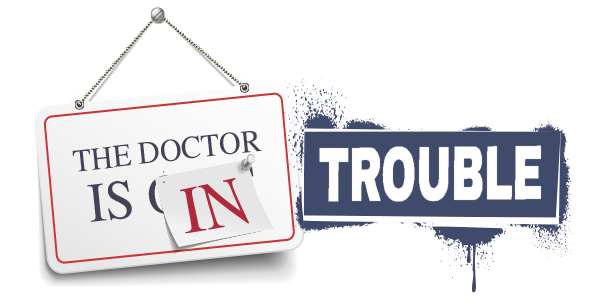
Physician wellness is associated with career satisfaction.1 Compared to other specialties, emergency physicians suffer from high rates of burnout.2–6 In addition to personal career satisfaction, wellness and resilience are important to maintaining patient safety and quality of care. We demonstrate some important principles of wellness and quality through five case scenarios.
Explore This Issue
ACEP Now: Vol 36 – No 05 – May 2017Case 1: No Duty Hours for Attendings
You are recovering from a painful divorce. Although suffering from some depression and sleep deprivation, your financial needs necessitate moonlighting to pay for your kids’ college tuition, and you are working 60–70 hours per week. Colleagues have remarked you are becoming forgetful. On a few occasions, you have forgotten to hand off patients properly to floor providers and lost track of treatments in progress for your ED patients. Who should monitor wellness and quality?
The Accreditation Council for Graduate Medical Education duty hour restrictions were set in place in 2003 and updated in 2011. These guidelines were instituted to enhance patient safety and improve the working conditions and education of resident physicians.1,2 Unfortunately, there are no restrictions on attending physician duty hours. The lack of regulatory oversight makes it imperative for individual physicians, colleagues, and departments to monitor workload and fatigue.
The primary responsibility lies with the emergency physician. Despite financial pressures, duty to patient safety and quality of care must supersede personal financial interests. The determination of an appropriate workload that allows for rest, exercise, nutrition, and social wellness should be made by the individual physician. At times, if judgment is clouded by personal circumstances, colleagues or medical directors may appropriately discuss these issues with the physician and arrive at a mutually agreeable plan of action.
Case 2: I Never Call in Sick!
After traveling from a busy week at ACEP’s annual meeting, you are scheduled to work three back-to-back shifts. You will only be able to get about three hours of sleep before your next shift, and you are already exhausted. Should you call in sick?
Emergency physicians display a high degree of responsibility to the profession. Many emergency physicians feel such a sense of responsibility and loyalty that they will work while ill, fatigued, or otherwise impaired. Many feel that to shirk such a responsibility would be an undue imposition on already-stressed colleagues.
The solution to this problem must be multifaceted. Insight and prevention are the primary pillars of the solution. Whenever possible, physicians should anticipate stressful schedules and situations and plan accordingly. In this case, it should have been anticipated that an early shift after a trip would not be conducive to wellness and optimal function.
Pages: 1 2 3 4 | Single Page




No Responses to “How Physicians Can Be Healthier Than Their Patients”